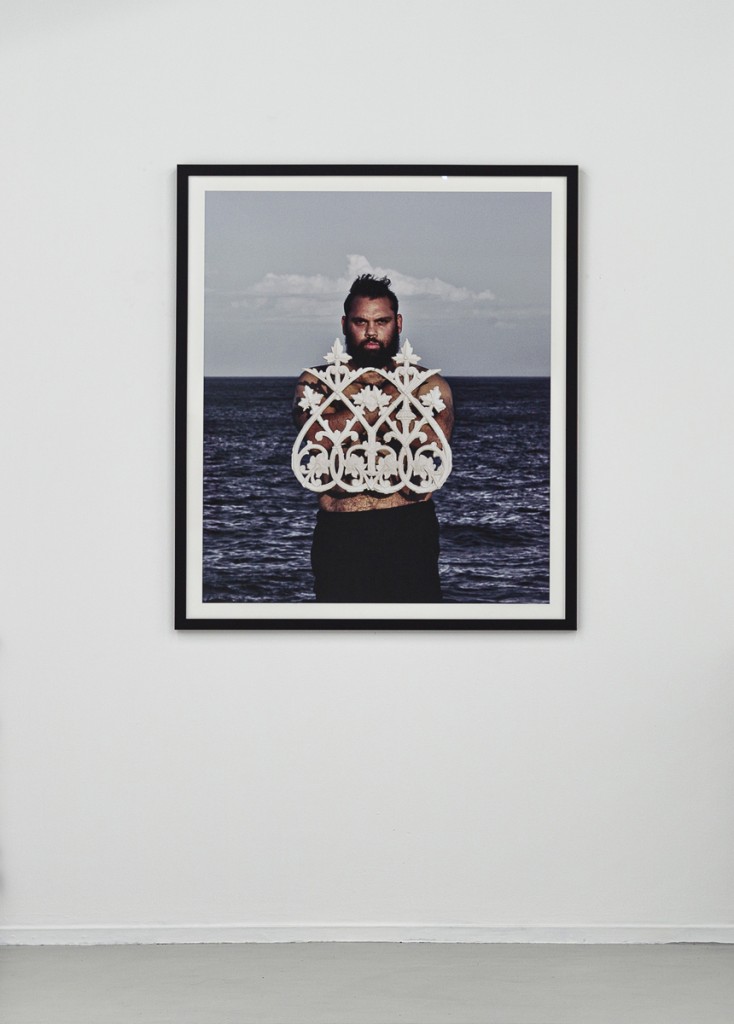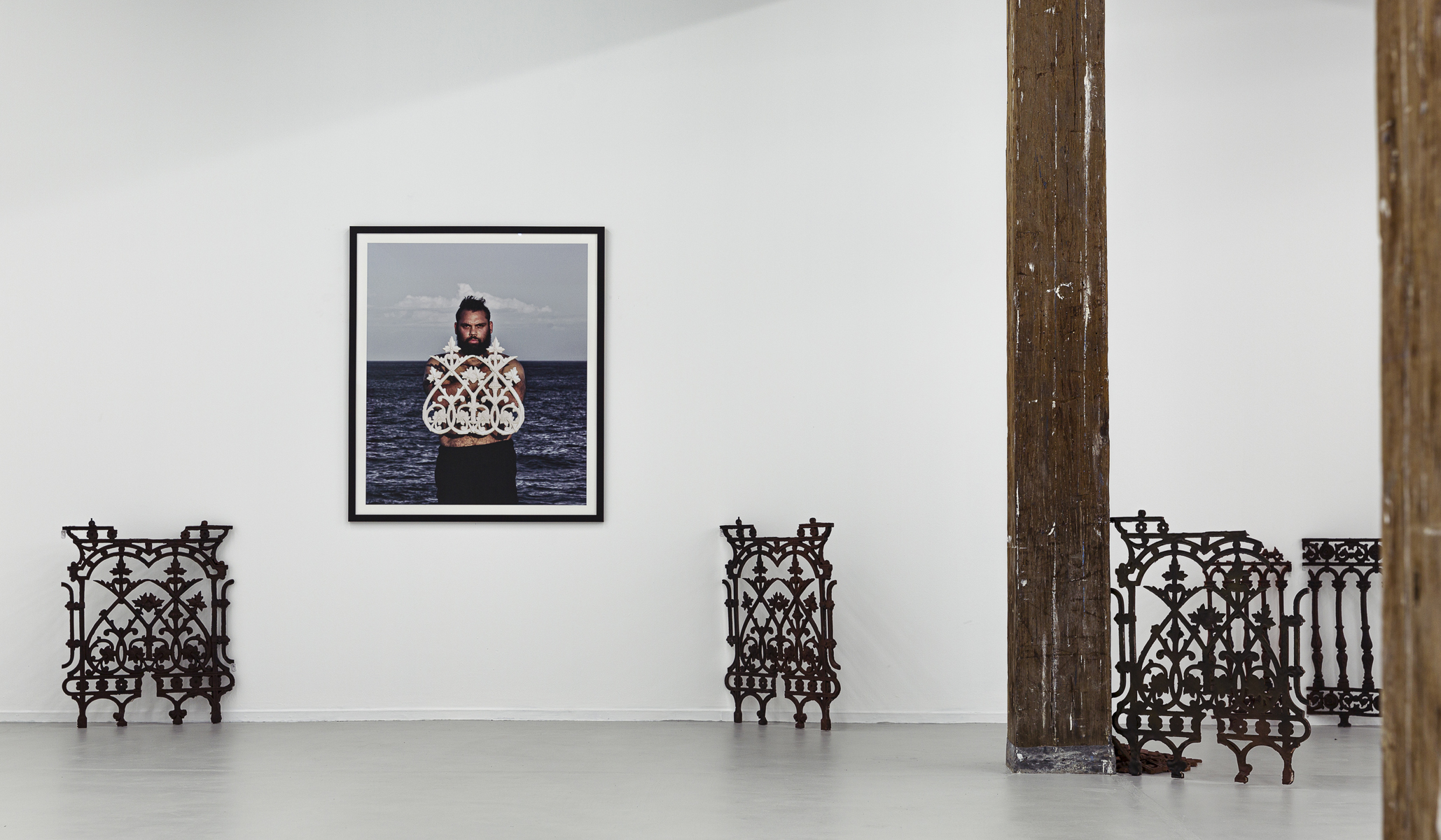Dennis Golding is a Kamilaroi/Gamilaraay artist from the north west of NSW and was born and raised in Sydney. Working in a range of mixed media including painting, video, photography and installation, Golding critiques the social, political and cultural representations of race and identity. His practice is drawn from his own experiences living in urban environments and through childhood memories.
Golding was surrounded by art from his urban upbringing living in an Aboriginal community in Redfern (often referred to as ’The Block’). As a young child, he often watched his mother and grandmother paint on large canvas and sheen fabrics which depicted Australian native plants and animals, cultural motifs and human figures. Before entering his formal art training, Golding worked as an administrative trainee at Nura Gili Indigenous Programs UNSW. He later developed his professional practice in art school through mentorships with leading curators, educators and artists. Golding graduated with a Bachelor of Fine Arts (Honours) at UNSW Art & Design in 2019 and now works independently as an artist and curator.

Through his artistic and curatorial practice, Golding aims to present powerful representations of contemporary Aboriginal cultural identity that inform narratives of history and lived experiences.
In 2020, Golding was the winner of the $30,000 NSW Visual Arts Emerging Fellowship (VAEF). Golding is the first Aboriginal artist to win in the award’s more than 100-year history. Awarded by Artspace Sydney and Create NSW, the VAEF is a key exhibition for profiling the dynamism and breadth of emerging contemporary artistic practice in New South Wales. The Fellowship enables a visual artist at the beginning of their career to undertake a self-directed program of professional development. Now in its 24th year at Artspace, it continues to define new generations of contemporary art practice for both artists and audiences.
Golding was awarded the VAEF for his powerful series of works titled Cast in cast out which reflect upon Golding’s childhood memories of growing up in urban environments in Sydney. Until the age of 13, Golding moved from terrace to terrace in the inner-city suburb of Redfern – often referred to as ‘The Block’. This work aims to understand the practices of colonial occupation and western structures of land ownership by investigating the manufacture, allocation and design of Victorian cast iron panels, which were an iconic architectural feature of the homes in which he once lived.
Golding reproduces the original lacework panels by casting them in epoxy resin and iron oxides. These reproductions become fragments of memories accumulated and broken through time as an attempt to decolonise them while the fence motif symbolises a threshold that keeps people in but also keeps people out. In a new photograph, the artist dismantles the panel in form of a shield, embedding the object with power and memory as he challenges the colonial gaze in a self-portrait. This work provokes the histories and experiences of Golding’s family as well as many other Aboriginal families who lived in terrace homes in the block. Cast in cast out acknowledges Aboriginal people’s connection to community and land, as well as the stories of dispossession and removal.
Dennis Golding is currently a finalist in the 2021 National Aboriginal and Torres Strait Islander Art Awards. He is also currently presenting a major exhibition at Carriageworks in Sydney. Curated by Kyra Kum-Sing and titled The Future is Here, the exhibition is the result of a collaboration between Dennis Golding and Aboriginal and Torres Strait Islander students from Alexandria Park Community School. The superhero capes exhibited in the show were created during a workshop in 2020, led by Golding who is an artist in residence at the school through Solid Ground. Students from Kindergarten to Year 12 designed their capes with iconography informed by their lived experiences and cultural identity.
As superheroes, Golding and his young collaborators are empowered and reminded of the strength of their culture in forming their identity and connection to Country. Individually and together, the capes critique social, political and cultural representations of contemporary First Nations experience. This series of capes were first presented earlier this year in the exhibition POWER at Blacktown Arts.
Dennis Golding’s work can also be seen as part of a feature article in the July-September 2021 issue of Art Collector Magazine. He is currently working towards a major solo exhibition at Artereal Gallery in 2022.

